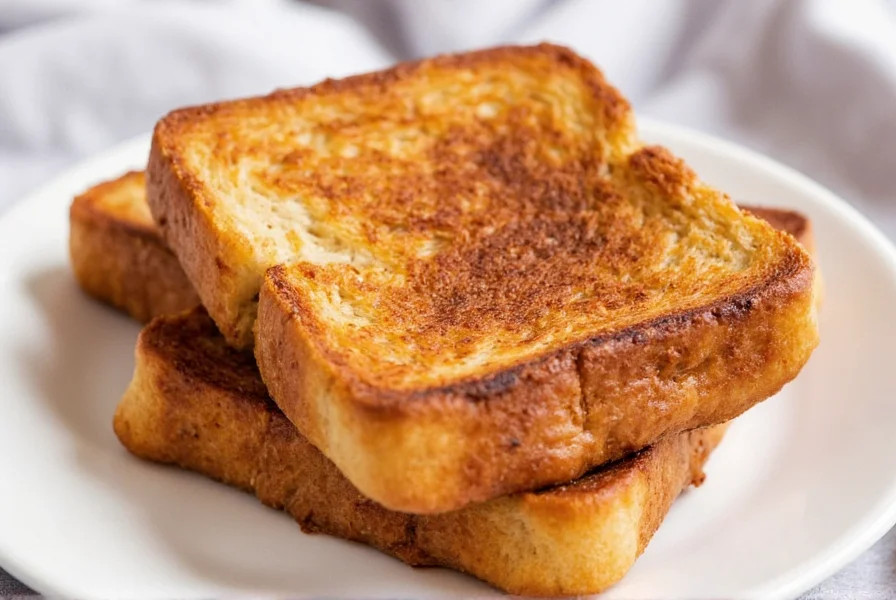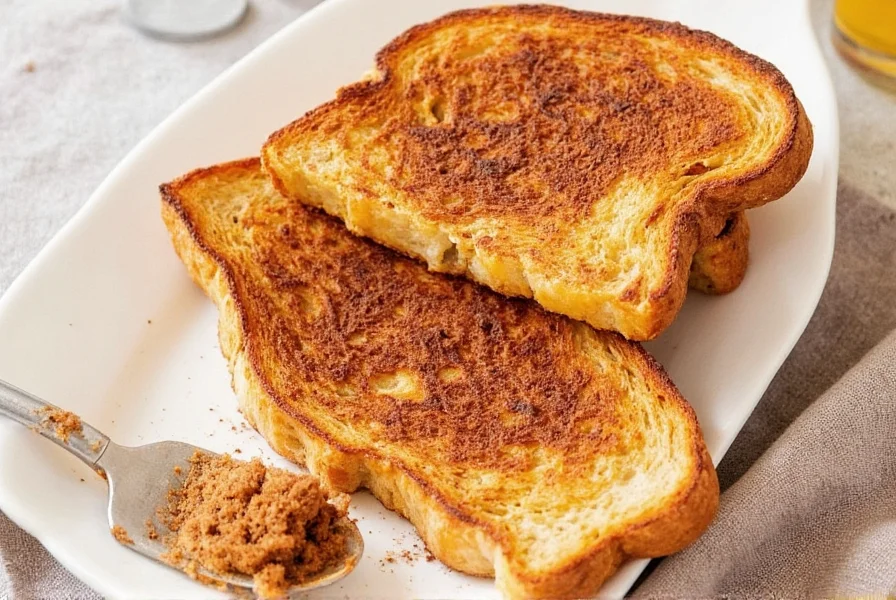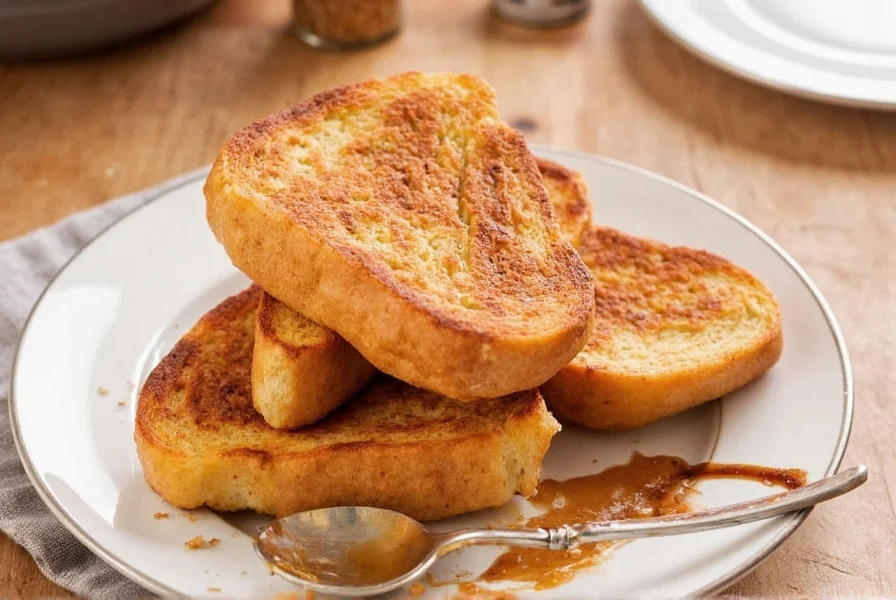There's something magical about the humble cinnamon toast that transforms basic ingredients into pure comfort. This timeless treat requires minimal effort but delivers maximum satisfaction, making it a go-to option for busy mornings or afternoon cravings. Understanding the science behind its preparation elevates this simple snack from ordinary to extraordinary.
The Science Behind Perfect Cinnamon Toast
What makes cinnamon toast so universally appealing isn't just nostalgia—it's chemistry. When you apply the cinnamon-sugar mixture to warm toast, the heat slightly melts the sugar, creating a delicate glaze that adheres perfectly to the bread's surface. The volatile compounds in cinnamon become more aromatic when warmed, releasing that familiar, comforting scent that stimulates appetite and creates a multisensory experience.
Professional bakers emphasize that the temperature differential matters: applying the mixture to toast that's too hot causes the sugar to melt excessively and create sogginess, while applying it to cooled toast results in poor adhesion. The sweet spot? Toast that's warm to the touch but not steaming—approximately 140°F (60°C).
Ingredient Selection: Quality Matters More Than You Think
Not all breads perform equally in cinnamon toast preparation. Artisan sourdough provides a tangy contrast to the sweetness, while brioche adds richness that complements the cinnamon. For optimal results, choose bread with a tight crumb structure that won't become soggy when buttered. Day-old bread often toasts more evenly than fresh bread, as the reduced moisture content prevents steaming during toasting.
When selecting cinnamon, opt for Ceylon cinnamon ("true cinnamon") for a more complex, floral flavor profile, though Cassia cinnamon works well for that classic, stronger cinnamon taste. The sugar-to-cinnamon ratio is crucial—too much cinnamon overwhelms, while too little leaves the toast bland. A 2:1 sugar-to-cinnamon ratio provides balanced sweetness with pronounced spice notes.
| Bread Type | Best For | Toast Time |
|---|---|---|
| Sourdough | Complex flavor balance | 3-4 minutes |
| Brioche | Rich, indulgent experience | 2-3 minutes |
| Whole Wheat | Healthier option | 3-4 minutes |
| Gluten-Free | Dietary restrictions | 4-5 minutes |
Step-by-Step Preparation Guide
Follow these professional techniques for consistently perfect cinnamon toast:
- Toast properly: Set your toaster to medium setting (level 4-5 on most toasters). The goal is golden-brown exterior with a slightly chewy interior—not brittle or burnt.
- Butter application: Use unsalted butter at room temperature. Spread thinly but evenly while the toast is still warm—this allows the butter to melt slightly without soaking in.
- Seasoning technique: Mix cinnamon and sugar in a small bowl. Sprinkle from 6 inches above the toast in a circular motion for even distribution.
- Resting period: Allow 30 seconds for the mixture to set before serving. This prevents the cinnamon-sugar from sliding off when you take your first bite.

Common Mistakes and How to Avoid Them
Even this simple recipe has pitfalls that can ruin your cinnamon toast experience:
- Soggy toast: Caused by applying butter to excessively hot toast or using too much butter. Solution: Let toast cool for 30 seconds before buttering.
- Burnt edges: Results from uneven toasting. Solution: Rotate bread 180 degrees halfway through toasting.
- Uneven flavor: Happens when cinnamon and sugar aren't properly mixed. Solution: Whisk the mixture thoroughly before applying.
- Bland taste: Often due to old or low-quality cinnamon. Solution: Replace cinnamon every 6 months for maximum flavor impact.
Creative Variations for Every Dietary Need
Adapt this classic recipe to accommodate various preferences and restrictions without sacrificing flavor:
Vegan Cinnamon Toast
Substitute butter with coconut oil or vegan butter alternative. For enhanced flavor, add a pinch of nutmeg to compensate for the missing dairy richness. Maple syrup brushed lightly over the toast before adding the cinnamon mixture creates a delightful caramelized finish.
Lower-Sugar Options
Reduce sugar by 50% and add a pinch of stevia for sweetness without the blood sugar spike. Alternatively, use monk fruit sweetener which caramelizes similarly to sugar. For natural sweetness, thinly slice apples and layer them on the toast before adding the cinnamon mixture.
Gourmet Upgrades
Elevate your cinnamon toast with these chef-inspired touches:
- Add a pinch of flaky sea salt to enhance flavor complexity
- Sprinkle with toasted chopped pecans for texture contrast
- Drizzle with a small amount of bourbon-infused simple syrup
- Top with a dollop of whipped ricotta for protein balance

Perfect Pairings and Serving Suggestions
Cinnamon toast shines when paired thoughtfully. For breakfast, serve with a mug of strong black coffee or creamy hot chocolate. As an afternoon snack, pair with green tea for a refreshing contrast. For dessert presentation, accompany with a scoop of vanilla bean ice cream and a drizzle of caramel sauce.
The timing of consumption matters—cinnamon toast is best enjoyed within 5 minutes of preparation when the texture contrast between crisp exterior and tender interior is most pronounced. Beyond this window, the moisture from the butter begins to soften the crust.
Storage and Reheating Techniques
While cinnamon toast is best fresh, you can store leftovers properly for later enjoyment. Place cooled toast in an airtight container with a silica packet to absorb excess moisture. To revive, reheat in a 350°F (175°C) oven for 3-4 minutes—never use a microwave, which creates sogginess. For meal prep, toast the bread plain, then add the cinnamon-sugar mixture just before serving.











 浙公网安备
33010002000092号
浙公网安备
33010002000092号 浙B2-20120091-4
浙B2-20120091-4